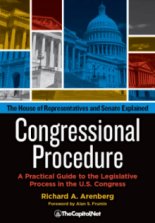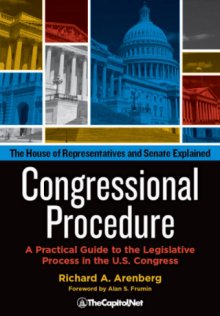Budget Enforcement Act of 1990 (CongressionalGlossary.com)
From the Congressional Glossary – Including Legislative and Budget Terms Budget Enforcement Act of 1990 P.O. Arnäs The Budget Enforcement Act of 1990, Pub. L. No. 101-508, title XIII, 104 Stat. 1388, 1388-573 (Nov. 5, 1990), was adopted to replace the Gramm-Rudman-Hollings Act of 1987, as a response to the budget crisis that persisted through … Read more




